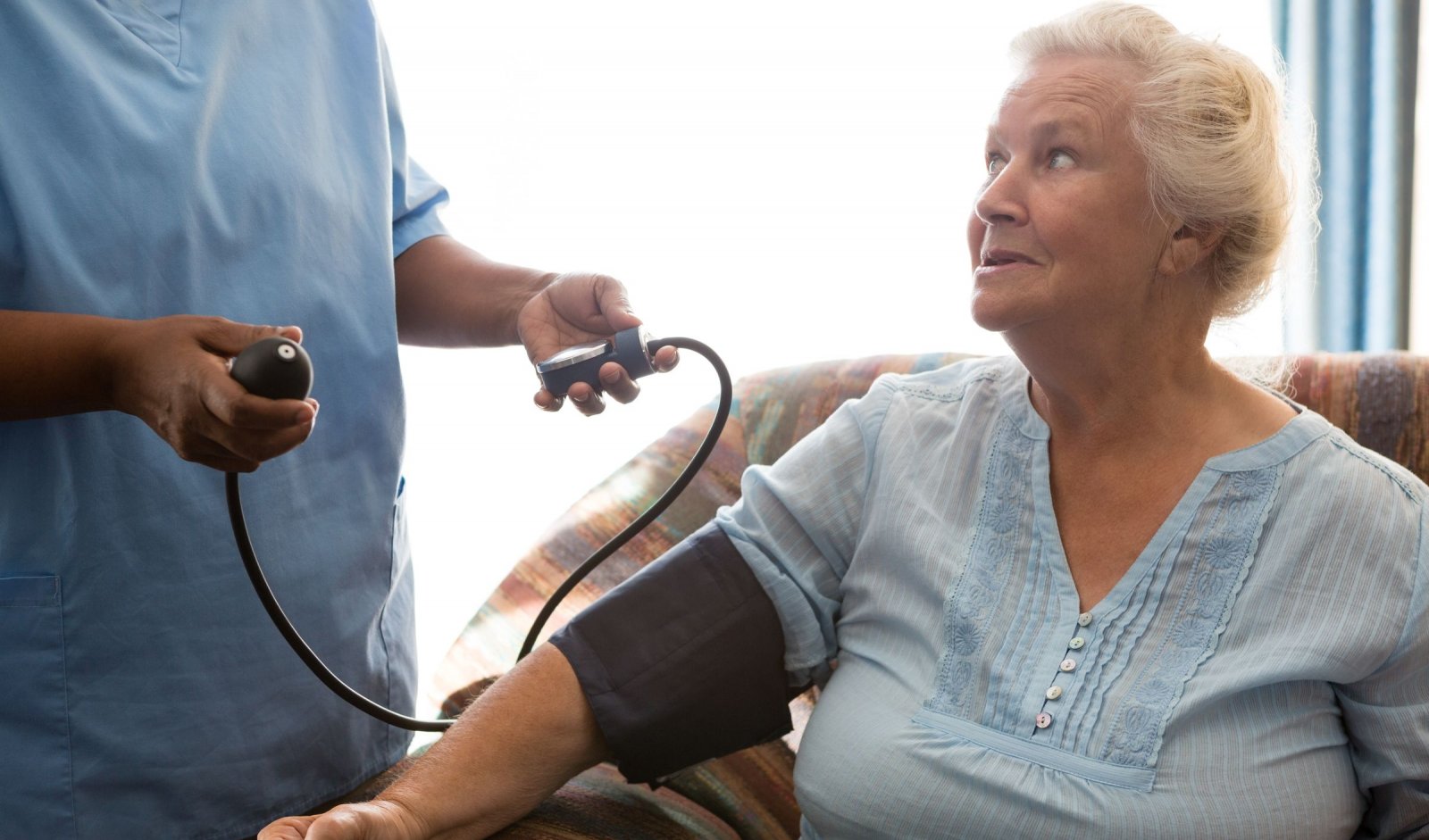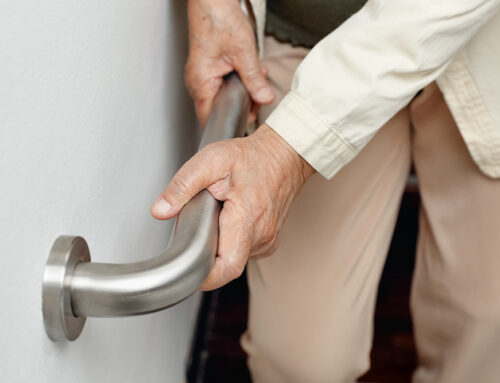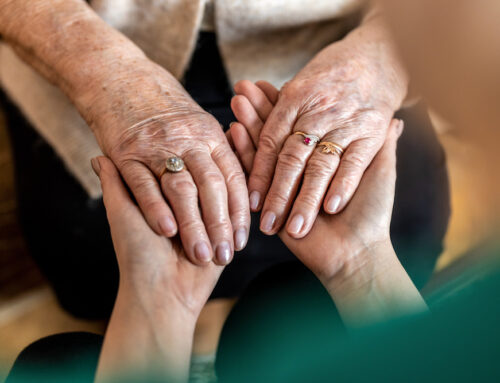The average age for people to retire is 63, but it’s never too soon to take an interest in your aging parent’s well-being. From keeping memory sharp to eating healthy, the following are ten things your elderly parent or loved one should be encouraged to do for their health.
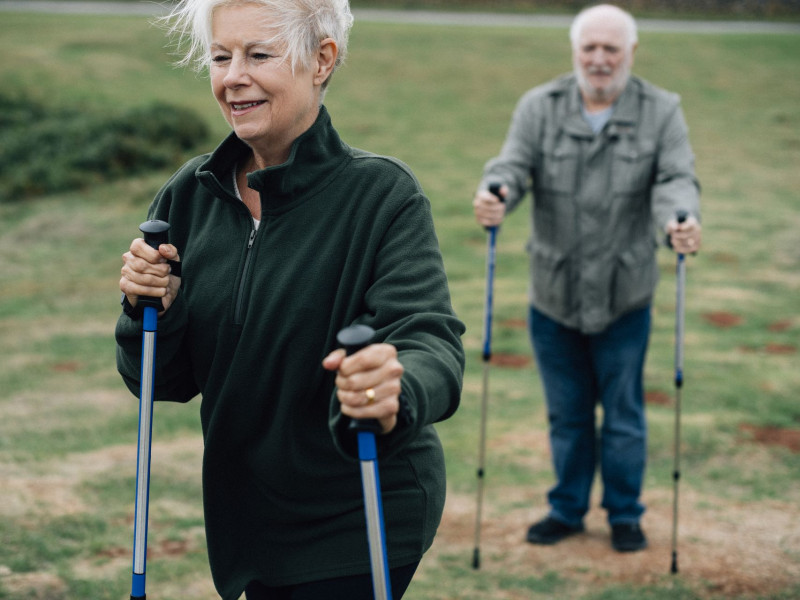 1. Stay Active
1. Stay Active
Exercise has many benefits, including alleviating depression, increasing energy, and improving memory function. Getting an exercise program approved by a physician, or just taking long walks regularly, can keep seniors healthy for longer. Try encouraging your loved one to join a community activity center to gain friends through exercise!
2. Eat Well
Because the digestive system begins to slow down with age, foods that are high in fiber are more important than ever. Investing in healthy foods like fruits, vegetables, and whole grains will help your loved one get the fiber they need. Seniors are also prone to dehydration, so they should drink plenty of water throughout the day. This will help them stay energized and mentally sharp.
3. Get Plenty of Sleep
Sleep is often neglected by people, whatever their age. Since insomnia and frequent waking are common among seniors, however, it’s increasingly necessary to encourage healthy sleeping habits. Make sure lights are turned down in the evening to spur drowsiness, and ensure that their bedroom is cool, quiet, and comfortable.
4. Get Regular Physical Exams
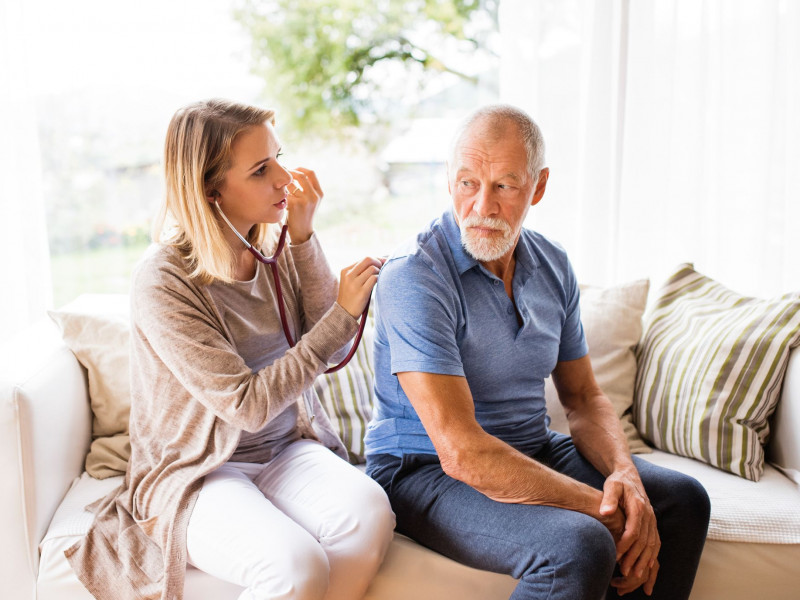
During their first year on Medicare, seniors are provided with free physical exams if they want them. After the first year, they can get free annual wellness visits. These should be taken advantage of to effectively keep track of your loved one’s health as they age. Preventative care is essential to stopping a small issue from ballooning into a serious problem.
5. Screen for Vision Problems and Changes
Seniors with glasses should have their vision checked once every year to find out if their prescription needs to be changed. Besides making everyday life better, having the right pair of glasses can help reduce a senior’s likelihood of falling. It’s also important to have their eyes screened for potential health issues, like cataracts.
6. Visit the Dentist Twice Per Year
A person’s risk of developing cavities increases with age. Additionally, many mouth infections can be connected to serious health conditions, such as heart disease, diabetes, and stroke. Because of this, seniors need to visit the dentist regularly.
7. Prioritize Prevention
An ounce of prevention is still worth a pound of cure. Preventive care appointments should be arranged as a senior gets older. Screenings for colon cancer, cholesterol levels, heart problems, and more qualify for Medicare coverage.
8. Address Mental Health
Seniors should read, write, do crossword puzzles, and experience new hobbies to stimulate their minds as they grow older. By engaging with the world around them and staying intellectually active, they can help keep mental health issues at bay.
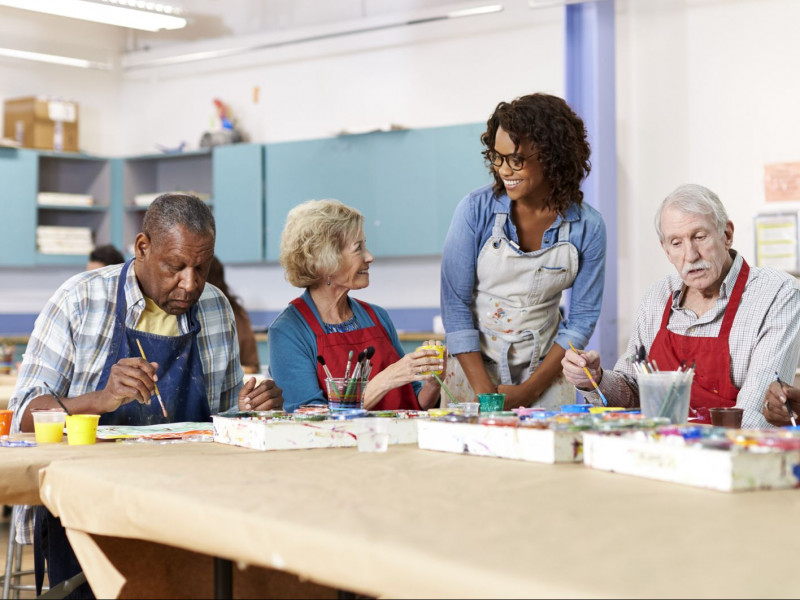 9. Socialize More
9. Socialize More
One of the best ways to help people feel more upbeat at any age is through healthy social interaction. Seniors should frequently engage with friends, neighbors, relatives, and grandchildren to feel more connected to the rest of the world. This is especially important for those with limited mobility. Try to visit your loved one as often as you can and ensure they have the mobility help they need to live as independently as possible.
10. Keep Up With Proper Medication Management
You should meet with your loved one’s physician and ask about their medications on a regular basis. Any time your loved one starts a new medication, you should take note of possible drug interactions, as well as any recent symptoms that might have been caused by the medication (such as allergic reactions, loss of appetite, and drowsiness). Even though your doctor should have a good grasp on what your loved one is taking, developing health issues can necessitate trips to a variety of medical specialists. Staying on top of your loved one’s medications is a proactive measure that every family should take.
Conclusion
Whether your aging loved one is at home or in assisted living, it’s important that you play an active role in their holistic health. From memory care to physical wellness, being involved in a senior’s life will help both of you feel better.


